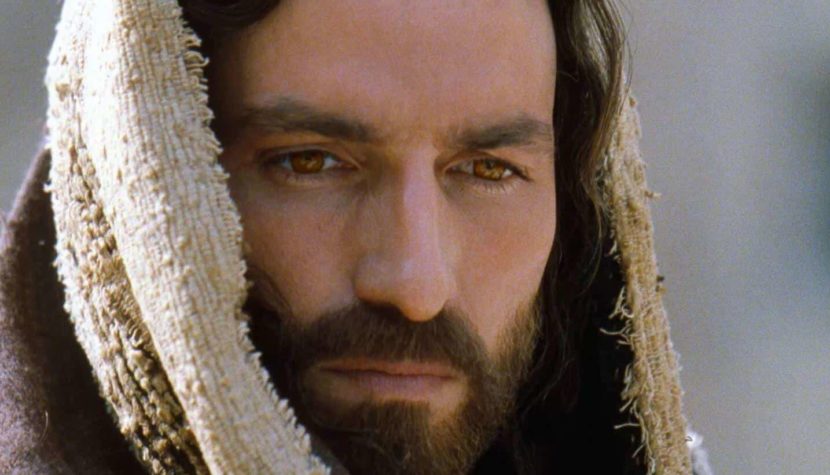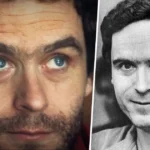THE PASSION OF THE CHRIST. A moving and touching film by Mel Gibson

I don’t think there are many movies that you like to watch for the first time knowing the ending in advance. Mel Gibson’s The Passion of the Christ is one of them. For Christians, the realistic and faithfully reproduced story of Jesus’ life is something well known, the Way of the Cross, death and resurrection are events that are remembered and relived every year. And despite this (or maybe because of it), crowds are drawn to this film. With what motivation? Religious – because I’m a believer, out of curiosity – because the film is controversial?
The Passion of the Christ confirmed me in the belief that Mel Gibson is a true Catholic, and his manifestations of religiosity and piety are not something for show. His vision of this film is very accurate and faithful to the biblical description, and the interpretation is extremely wide. Only a sincere believer could be so involved in creating a work about God and his confession. The film itself reminds Christians of things they knew about, but perhaps they were not fully aware of, did not think deeply about them. The scourging scenes show how cruel and bestial the torture was, the carrying of the cross – how heavy it was. The film makes us realize that Jesus really lived, was human and suffered so much. It reminds us that every evil we do is nailing a nail into the hand of Christ. That everyone has a cross to carry in their lives, their moments of falls and doubts, and after them – resurrection. Simple – but that’s what Jesus was talking about.
The scenes on the cross are the quintessence of Christ’s teaching, they show the essence of Christianity, the power of forgiveness, love, the victory of good over evil (Christ dies for the sins of humanity by defeating Satan). The crucifixion is the most important event for Christians – in this act Christ redeemed the sins of the whole world to save it. His suffering is a blood sacrifice – but it is tantamount to proof of love for humanity. Saying that the film is bathed in blood and its drasticness is senseless is also saying that the teaching and sacrifice of Christ are senseless. There are a lot of violent scenes in this film, but the brutality is justified. The Passion of Christ is fundamental and crucial in the fate of the whole world. Gibson brilliantly juxtaposed it in the film with The Last Supper – these events are of great value to Christians. At The Last Supper, Christ institutes the Sacrament of Holy Communion, a bloodless sacrifice, and performs it in a bloody way on the cross. Especially in this film fragment, where we see scenes from these two events alternately, one can feel that Gibson really understands the essence of his religion, knows what is important in it, what are its connections.
Related:
The film is actually about the Passion of Christ, from the capture in Gethsemane. However, Gibson weaves images of the past into the present. These flashbacks (often based on comparisons and associations) make the film more interesting and fuller. In addition, Gibson does not focus solely on Christ, he emphasizes how important other characters were. Satan often appears – it’s hard to determine his gender, looking at him you can come to the conclusion that he has something of a woman and a man. The main thing in it is that it simply symbolizes the ubiquitous evil. Judas is not only a traitor, but also a tragic man who regrets his actions and is internally torn. It awakens pity. Mary (played by Maia Morgenstern) is the Mother of Sorrows, who suffers because she sees the suffering of her Son, is full of grief and despair. Maria Magdalena (Monica Belluci, who again shows that even in a small role she can mark her presence on the screen) is a companion of misery, also suffering. The most important role – Jesus – was taken on by Jim Caviezel. Certainly a difficult and responsible task rested on him to play someone who is loved (at least theoretically) by 1/3 of the world, you have to show some kind of courage, you have to be exceptionally convincing, show your suffering and triumph, and at the same time be careful not to fall in the process in exaggeration. And I think Caviezel handled the role very well. He has a stoic calm and a certain pride, and on the other hand, also humility. When on the cross he says: “My God, why have you forsaken me?” – he does not exaggerate, he is not exaggerated in his doubts, his pain really arouses compassion and touches. And not only because he suffered so much and was treated cruelly, but because it happened according to the will of his Father, and he humbly agreed to it, remembering about love for others.
The film is poignant and touching, not only in its drastic nature. When two thieves hang on the crosses next to Christ, and one of them confesses his sins and states that Christ dies without guilt, the latter speaks to him with emotion about the Kingdom of God and that they will both be there on the same day. Included in this is a certain summary of Jesus’ teaching about forgiveness, but also about humility, about recognizing one’s faults. However, I also believe that these scenes can really move and appeal only to Christians who understand at least a little the essence of their faith, what Christ taught. For others, it may be just a bloody spectacle, a senseless sacrifice, unnecessary sacrifice, or perhaps a cultural and religious curiosity. Only Christians will fully understand and care for this film.
Technically speaking, this is a brilliantly made film. Great cinematography, music by John Debney setting the mood. The acting is also very good. In addition, it tells one of the most important stories in history – and in a way that cannot be faulted in its reality, despite its bluntness and literalness. Taking all this into account, I have to admit that The Passion of the Christ is a film that is impressive, reflective and in a way also beautiful.







